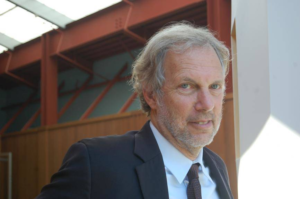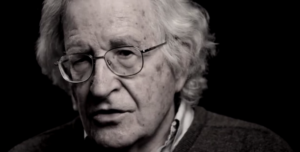The Differences Between Fascism And Trump(ism)
Trump’s policies were brutally neoliberal, racist, nativist, authoritarian, narcissistic — but fascist?
Donald Trump will go down in history as the president responsible for the death of hundreds of thousands of Americans due to the criminal negligence in his handling of the Covid-19 pandemic and for pushing the world closer to a precipice with his denialism of our climate crisis; yet, he may ultimately be best remembered for having decidedly transform American political culture with the theatricality of his proto-fascist politics.
Trump emerged on the political scene at a time of increasing contradictions in the American system of economic organization and distribution, with the rich getting richer and the poor poorer, and growing divisions within society at large over race, ethnicity, and culture. While he had no previous political experience, his instincts told him that the route to power in a highly divided society was to double down on those divisions–a tactic that had been employed quite successfully in the past by various extreme political figures all over the world, including the likes of Benito Mussolini in Italy and Adolph Hitler in Germany, respectively.
Indeed, Trump’s stratagem of tapping into a huge reservoir of racism and nativism through the use of white identity politics and exploiting public discontent associated with America’s economic decline through a standard repertoire of ultranationalist rants and transparent scapegoatism was key to his rise in power. Moreover, rather than aiming to unify a divided country while holding the nation’s highest office, he continued to act more like the leader of a political party bent on cementing the ideological and cultural divisions in American society, all while implementing economic policies that would lead to further inequality and the expansion of the power of the plutocracy.
Trump’s transformation of American political culture consisted in the unleashing of dangerous forces–arch-enemies of the open and diverse society–that posed an internal threat to liberal democracy. His refusal to accept the outcome of the 2020 election, and subsequent attempts by him and his allies to overturn the election, was indeed the culmination of four years of proto-fascist political rhetoric and authoritarian grandstanding.
Subsequently, Trump’s politics has led many to conclude that the alleged billionaire entrepreneur is a fascist and that the United States was actually on the verge of becoming a fascist country during his four-year tenure in power. It is a belief that continues to hold sway over the minds of many progressives, especially since the GOP is officially now Trump’s party and Republicans are fighting as dirty as they can to return to power, with or without Trump at the helm.
However, as I will argue below, and without any intention of downplaying the dangers that Trump and Trumpism represent for a dysfunctional democracy like the one that prevails in the United States, this is a belief based on a misunderstanding of fascism both as a movement and as a regime. Fascism has specific politico-economic properties, even though there are some subtle differences between Italian fascism, German Nazism, and Spanish Francoism, and is defined by a unique philosophical worldview regarding the relationship between state and individual. Fascism is an extreme right-wing authoritarian form of government, but not all authoritarian governments qualify as fascist, and the term in connection with Trump is quite misleading. In fact, hardly any expert on fascism thinks that what Trump practiced fits with the political ideology behind fascism.
The differences between fascism and Trump(ism) are quite striking. Trump and the political movement that he created do share certain traits with fascism, such as reliance on hate, fear, and conspiracy theories, along with the rejection of reason, to deepen social divisions and to create a sense of an imminent collapse as part of a strategy whose aim is to change the political environment by bringing about a change in the existing balance of social forces. But these are tactics that have been widely used by authoritarian leaders and extreme populist movements throughout the modern era of politics. Moreover, while the characterizations of Trump as an authoritarian figure with an utterly narcissistic personality or as a dangerous con artist who manipulates people to believe in lies and “alternative facts” are totally, unmistakably true, the orange maniac is not an ideologue by any stretch of the imagination; instead, he will gladly say whatever he feels is necessary to please his base.
What is fascism?
First, fascism represents one form of “exceptional capitalist state,” as the Marxist political sociologist Nicos Poulantzas had argued, and reflects the breakdown of social order as a result of a severe capitalist crisis and the ensuing confrontation between different classes and ideological groups for political hegemony.
Fascism emerged in Europe during the interwar years (1919-1939) and was first established in Italy under Benito Mussolini (1922-1945) and then in Germany under Adolph Hitler (1933-1945). Italian fascism and German National Socialism represent “classical fascism” and rest on similar belief systems and regime properties, with one possible exception: the “biological” state did not figure as prominently in Italian fascism as it did under the Third Reich.
Fascism relies on paramilitary squads to spread terror and pursues relentless raids against socialists, communists, and other arch-enemies of fascism. This was typical of the role of Mussolini’s paramilitary squads, known as the “blackshirts,” whose activities covered all regions of the country, including the peninsula and the islands of Sardinia and Sicily, and constituted an integral component of the fascism’s march to power and the establishment of a dictatorship.
The Nazi rise to power followed a similar path. In 1921, Hitler formed the paramilitary organization Sturm Abteilung (SA), more commonly known as the “brownshirts.” The purpose of the “Sturm Unit” was none other than to intimidate political opponents. In 1925, Hitler established a sub-division of the SA, the Schutzstaffel (German for “Protective Echelon”), otherwise known as the SS, which served as Hitler’s personal bodyguards. The SS, Hitler’s “master race,” would eventually see its role and size expanded dramatically after 1929 when Heinrich Himmler was put in charge. By the start of World War II, the SS consisted of more than 250,000 members that had a hand on virtually all major Nazi activities, including running concentration camps.
Unless I am mistaken, there were no signs of “blackshirts” or “brownshirts” engaging in thuggish vigilantism before Trump’s rise to power.
Fascist political ideology is also unmistakably unique. Fascism strips away individual rights and glorifies the state. The organic state is typified by the fascist regime, which assigns the state complete control over every aspect of national life. For Giovanni Gentile, the philosopher and political theorist of Italian fascism, “state and individual are one,” while “the authority of the state is not subject to negotiation, or compromise, or to divide its terrain with other moral or religious principles that might interfere in consciousness.”
Fascism bans political opposition, ends constitutional rule, enforces censorship, and imprisons political opponents.
Indeed, as Benito Mussolini’s own formulation of fascism has it, “Everything in the State, nothing outside the State, nothing against the State.”
It is worth quoting at length the fascist conception of the state, as articulated once again by Mussolini himself:
Anti-individualistic, the Fascist conception of life stresses the importance of the State and accepts the individual only in so far as his interests coincide with those of the State, which stands for the conscience and the universal, will of man as a historic entity. It is opposed to classical liberalism which arose as a reaction to absolutism and exhausted its historical function when the State became the expression of the conscience and will of the people. Liberalism denied the State in the name of the individual; Fascism reasserts.
Totalitarianism and state terrorism are defining attributes of fascism. Trump’s administration, horrific as it was, exhibited no such features.
There are also striking differences between fascism and Trump(ism) when it comes to the economy.
Fascists do not oppose private property but believe in taming capitalism by forming a specific relationship between state and big business or monopoly capital, with the state having the upper hand. Mussolini identified the economics of fascism as “state capitalism.” Fascism also intervenes in the overall workings of the economy through coordinated actions of some central planning board to attain a set of “fixed objectives,” even if those actions tended at times to involve “dis-organic intervention,” as Mussolini himself had once complained. Fascism also controls the monetary system, sets prices, and promotes large government projects and all sorts of public works as part of the pursuit of its alleged “full-employment” economy. Hitler’s autobahn construction (though plans for the autobahn date to the 1920s and construction had actually begun before Hitler came to power) was undertaken under that pretext. Nonetheless, it was rearmament that helped the Nazis achieve economic recovery in the 1930s.
Trump’s economic policies, on the other hand, were brutally neoliberal in origin and scope. The war alone that his administration launched on regulations clearly testifies to Trump’s commitment to free-market fundamentalism. As far as his opposition to “free trade” is concerned, it was initiated by his belief that other countries were bending the rules at the expense of the United States, not because he was in principle against the idea of “free trade.”
Trump’s policies sought to enhance even further the power of the plutocracy in the United States. And he accomplished this through the pursuit of extreme neoliberal policies, not through a corporatist model. On the other hand, to keep his fanatical base loyal, he employed a standard repertoire of proto-fascist rhetoric and challenged as far as he could the foundations of liberal democracy, which, according to his followers, had set rules that cater to the whims of the “detestable elite.”
In this manner, Trump was not alone. Virtually all authoritarian political figures out there today (Orban in Hungary, Erdogan in Turkey, Bolsonaro in Brazil, to name just a few) use similar tactics, exploit the vulnerabilities in the political culture in which they operate and exhibit disdain for the rule of law. Do they all, with Trump together, belong to the fascist camp? Not unless the aim is to reduce fascism to a meaningless political ideology and forget the sickening atrocities committed by fascist regimes in the most murderous century in recorded history.
—
Source: https://www.commondreams.org/
Our work is licensed under Creative Commons (CC BY-NC-ND 3.0). Feel free to republish and share widely.
C.J. Polychroniou is a political economist/political scientist who has taught and worked in numerous universities and research centers in Europe and the United States. He has published scores of books and his articles have appeared in a variety of journals, magazines, newspapers, and popular news websites. His latest books are Optimism Over Despair: Noam Chomsky On Capitalism, Empire, and Social Change, an anthology of interviews with Chomsky originally published at Truthout and collected by Haymarket Books; Climate Crisis and the Global Green New Deal: The Political Economy of Saving the Planet (with Noam Chomsky and Robert Pollin as primary authors); and The Precipice: Neoliberalism, the Pandemic, and the Urgent Need for Radical Change, an anthology of interviews with Chomsky originally published at Truthout and collected by Haymarket Books (scheduled for publication in June 2021).



